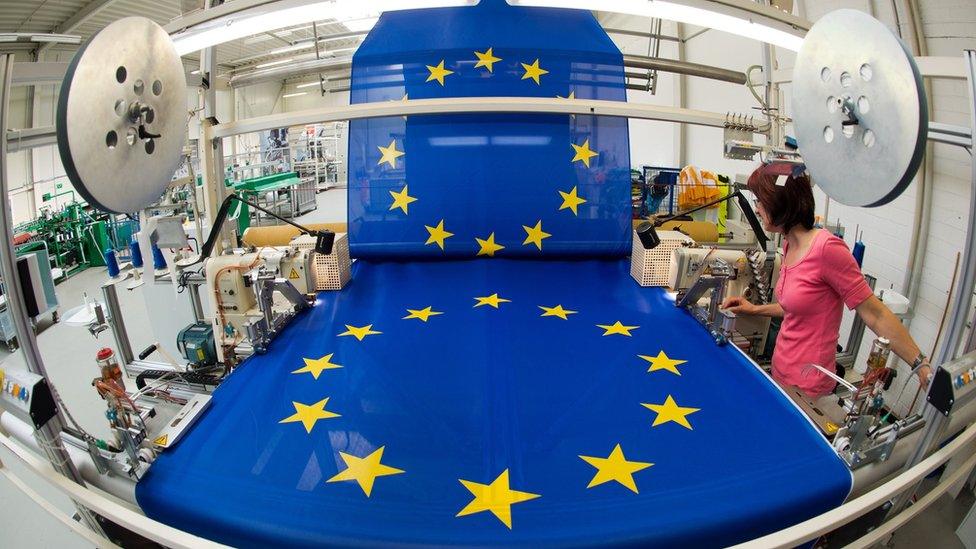Eurozone inflation returns to zero
- Published

Inflation in the eurozone returned to zero in October from September's -0.1%.
Price growth in food, alcohol and tobacco increased slightly, while energy prices were still considerably lower than last year, according to Eurostat estimates., external
The statistics agency also estimated the unemployment rate, external in the 19 countries that use the euro was 10.8% in September, down from August's 10.9%.
The rate for the 28 EU members was 9.3%, down from 9.4% the month before.
The eurozone rate is the lowest since January 2012 while the rate for the whole EU is the lowest since September 2009.
Greece had the highest rate at 21.6% (Greece is expected to be higher but has yet to report September figures), while Germany had the lowest at 4.5%.
'Small improvements'
The inflation figures are an early, flash estimate from Eurostat and so are not broken down by member state.
It does give broad indications of which groups of products have gone up or down.
Food, alcohol and tobacco prices were estimated to be rising 1.5% in October, compared with 1.4% in September.
Energy prices were falling an annual 8.7%, compared with 8.9% a month earlier.
And the price of services were up 1.3% compared with 1.2% the month before.
Mario Draghi, president of the European Central Bank, suggested this month that he might be prepared to extend the bank's programme of quantitative easing given the low levels of eurozone inflation.
"Although today's inflation and unemployment data for the eurozone revealed small improvements, they are still very weak by past standards, suggesting that the ECB cannot afford to delay increasing its policy support much longer," said Jessica Hinds, European economist at Capital Economics.